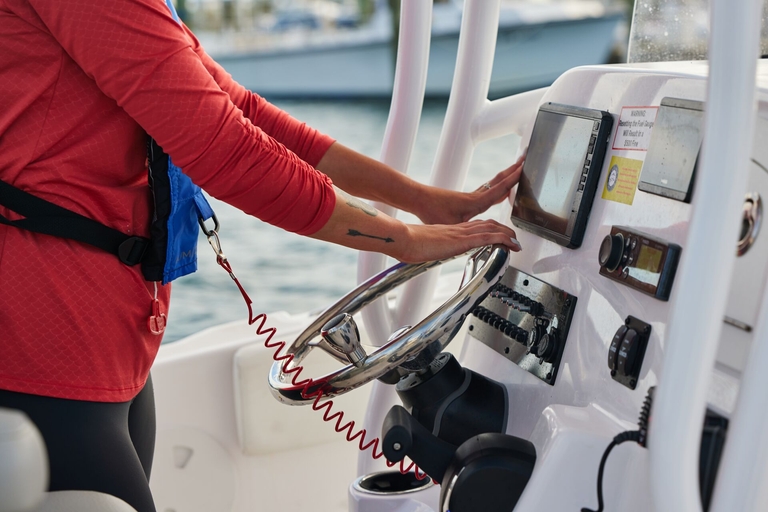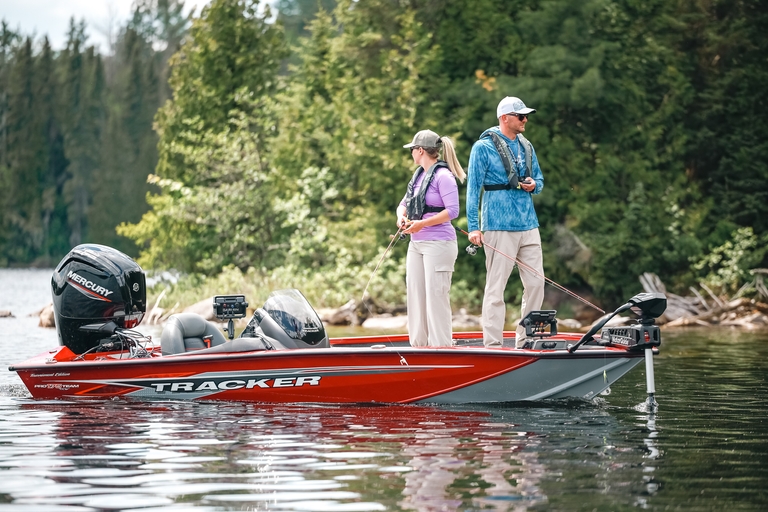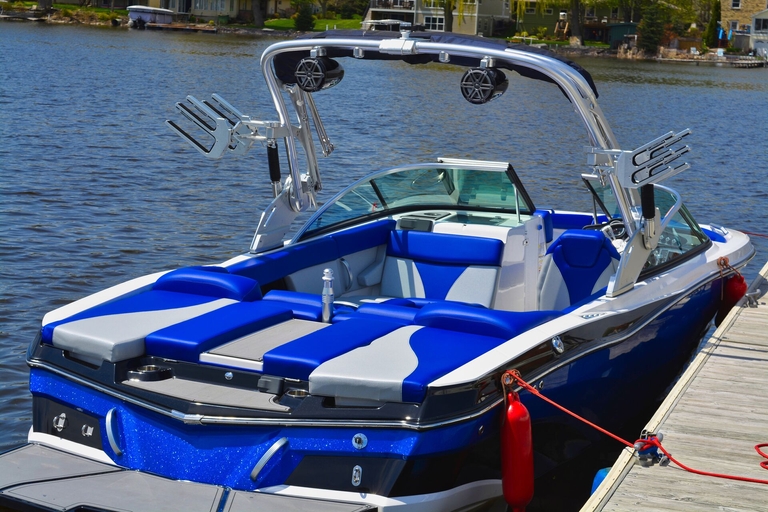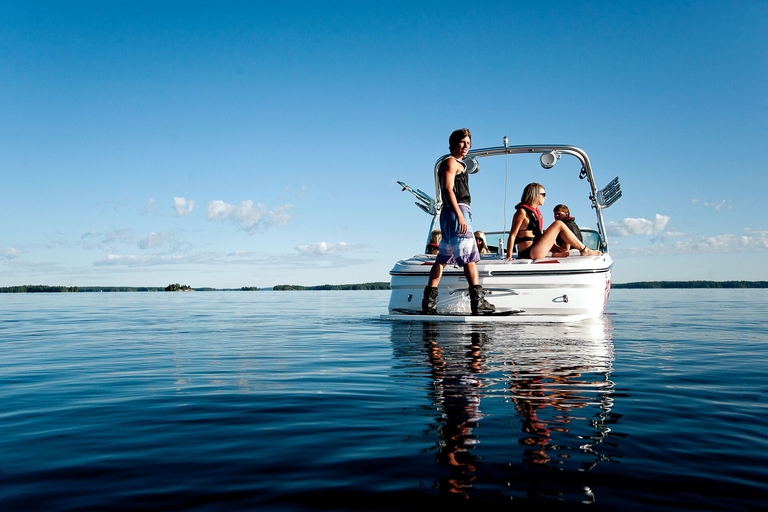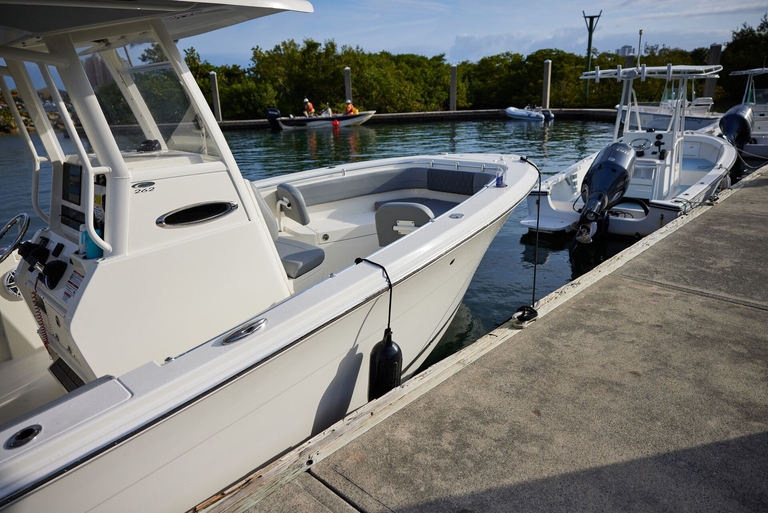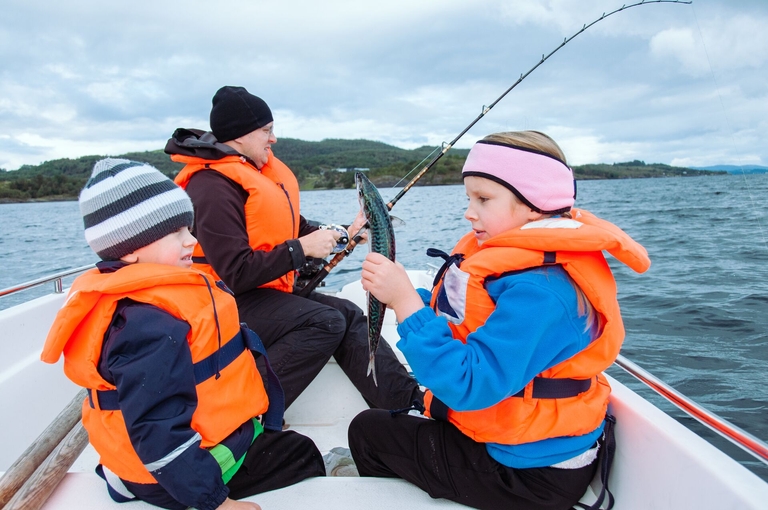Do I Need a License To Operate a Pontoon Boat?
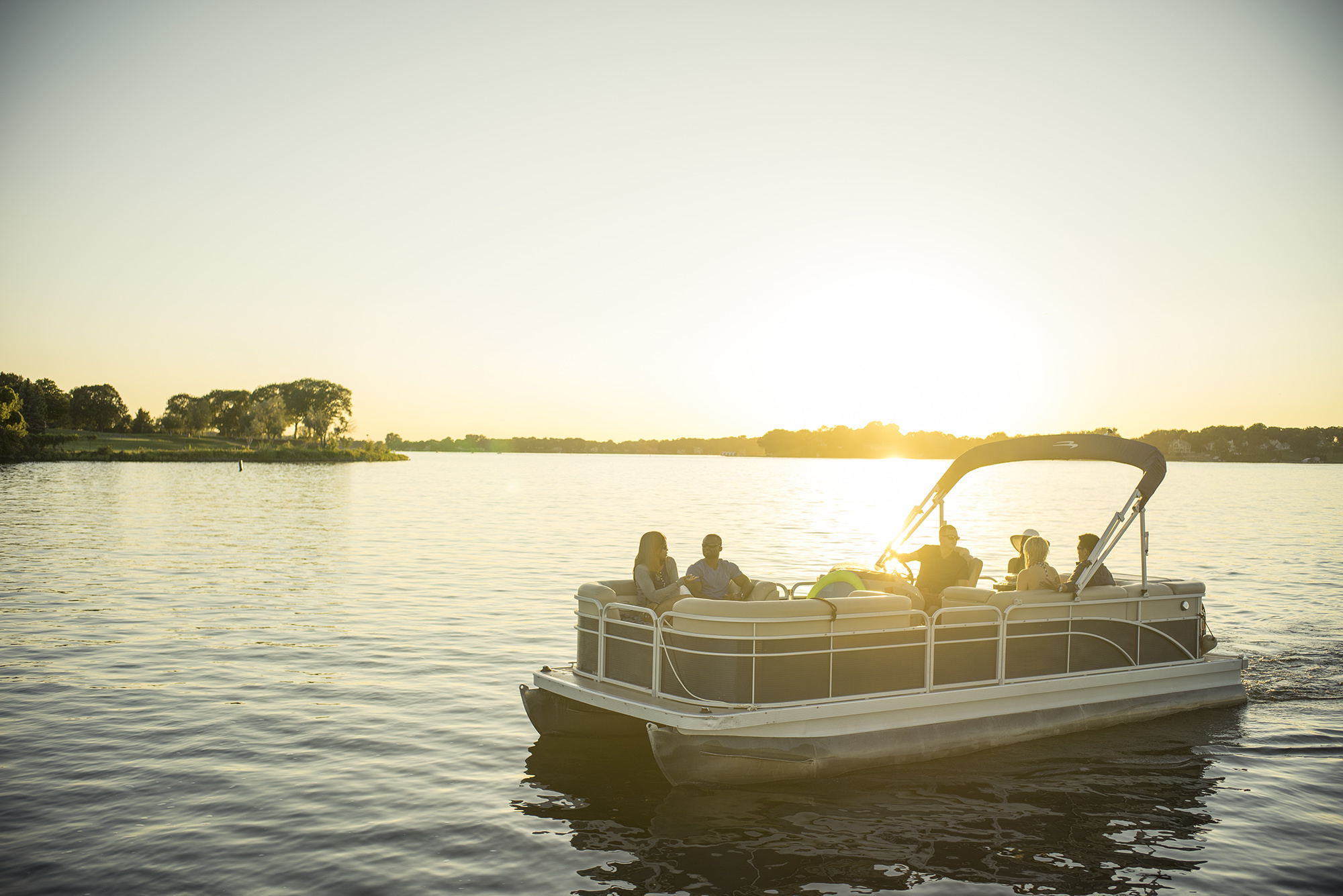
If you're keen on fishing, sightseeing, or watersports, a pontoon boat might be the best option for a casual day out on the water.
However, before you slip on your captain's hat, be sure you're compliant and up to date regarding insurance, safety, and licensing requirements.
Here's everything you need to know about licensing and operating a pontoon boat.

What Is a Pontoon Boat?
A pontoon boat is a watercraft vessel that uses buoyancy from two tube-like (sometimes three) parallel-running pontoons as its central feature.
It's a flat, square-shaped boat that is generally rigid due to its double hull. It's very similar in design to a barge and is powered by an outboard motor.
Pontoon boats are stable and often noted for their deck space. Due to their high buoyancy, their drafts are short, meaning they are fantastic for operating in shallow waters and for on-shore pickup and drop-offs. This accessibility and ease of boarding make them family-friendly, with waterskiing, wakeboarding, tubing, and fishing all popular pontooning options.
Legal Requirements for Operating a Pontoon Boat
Pontoon boat operation requirements vary from state to state, and you should be encouraged to research your specific state laws to ensure total compliance.
When determining specific laws, the question of what is a pontoon boat doesn't factor in, as the Coast Guard provides minimum safety requirements regarding boat sizes. By looking at the safety rules regarding boats sized 16-26 feet, we can determine some foundational rules relevant to a pontoon boat.
These include:
- One type I, II III, or VV USCG-approved life jacket per person on board, plus one type IV throwable device
- One B-I type fire extinguisher
- Three-day use and three-night use pyrotechnic distress devices
- Registration papers on board and a marked registration number on the vessel
- Horn, bell, or whistle sound-producing devices (highly recommended)
- Navigational lights are mandated by law
- Understanding of the rules (not mandated but highly recommended)
Remember that these are the minimum requirements. We recommend additional tools such as a first aid kit, VHF radio, toolbox, emergency water supply, and other safety items to ensure everyone stays safe while enjoying your pontoon boat on the water.
Licensing for Pontoon Operation and Age Restrictions
When operating a pontoon boat, depending on how you use the boat, you may need a commercial license. However, all other licensing matters are relegated to the states.
It's essential to explore whether a boating license is required to operate a pontoon in your area, as the state requirements differ. Most states require all boat operators – regardless of the type of boat they drive or own – to have a license and safety certification before hitting the water.
Keep in mind that many states don't write rules for pontoons specifically; instead, they indicate laws that depend on the size of the boat as opposed to the type of the boat.
Next, we'll cover several factors determining your need for a boat license.

Consider the Age of the Boat's Operator
Some states have minimum age requirements for boat operation and licensing, with 12-13 years old often the minimum age for operation.
It's crucial that young boaters, especially, take a boat safety course to help them understand how to operate a pontoon safely.
Boating Safety Education is Smart (for Everyone)
Some states require an operator card or safety education certificate, but this doesn't mean you shouldn't take a safety course anyway – even if your state doesn't require it. For clarification about the regulations in your area, reach out to the state governing body.
Why is safety education important? Conditions on the water can be unpredictable, and a state-approved course helps you know how to apply specialized equipment and techniques during an emergency.
Additionally, a boating education course can make you more aware of potential hazards and give you the tools to deal with them in a real-life situation. You'll also become a better navigator, increase your docking and maneuvering skills, and build much-needed confidence on the water.
Insurance Considerations
While only a few states mandate boat insurance, this doesn't mean it isn't recommended for every vessel.
Pontoon boats are a significant financial investment, and protecting your investment and those you love is essential in case of mishaps or emergencies out on the water.
Before settling on any insurance, do a complete needs and usage analysis, including what purposes you'll use your boat for, your intended locations, your experience, financial capacity, and more.
Some popular types of coverage include:
- Liability insurance: Provides financial protection against you and other boat users on the water in case of an accident. Your insurer will cover the resulting expenses for damage caused by the accidents.
- Property damage liability: Covers any damage to property, including docks or other boats, and some cover may provide coverage for wreckage removal in case of serious incidents.
- Collision coverage: Provides a safeguard after an accident, as collision is sometimes considered under a separate policy.
- Comprehensive coverage: Comprehensive coverage will include collisions, theft, vandalism, and fire.
For an accurate quote, have your make and model, and make sure you're up to date with a boating safety course as this can sometimes lower your insurance costs.
Remember that even if not required, insurance is always recommended.
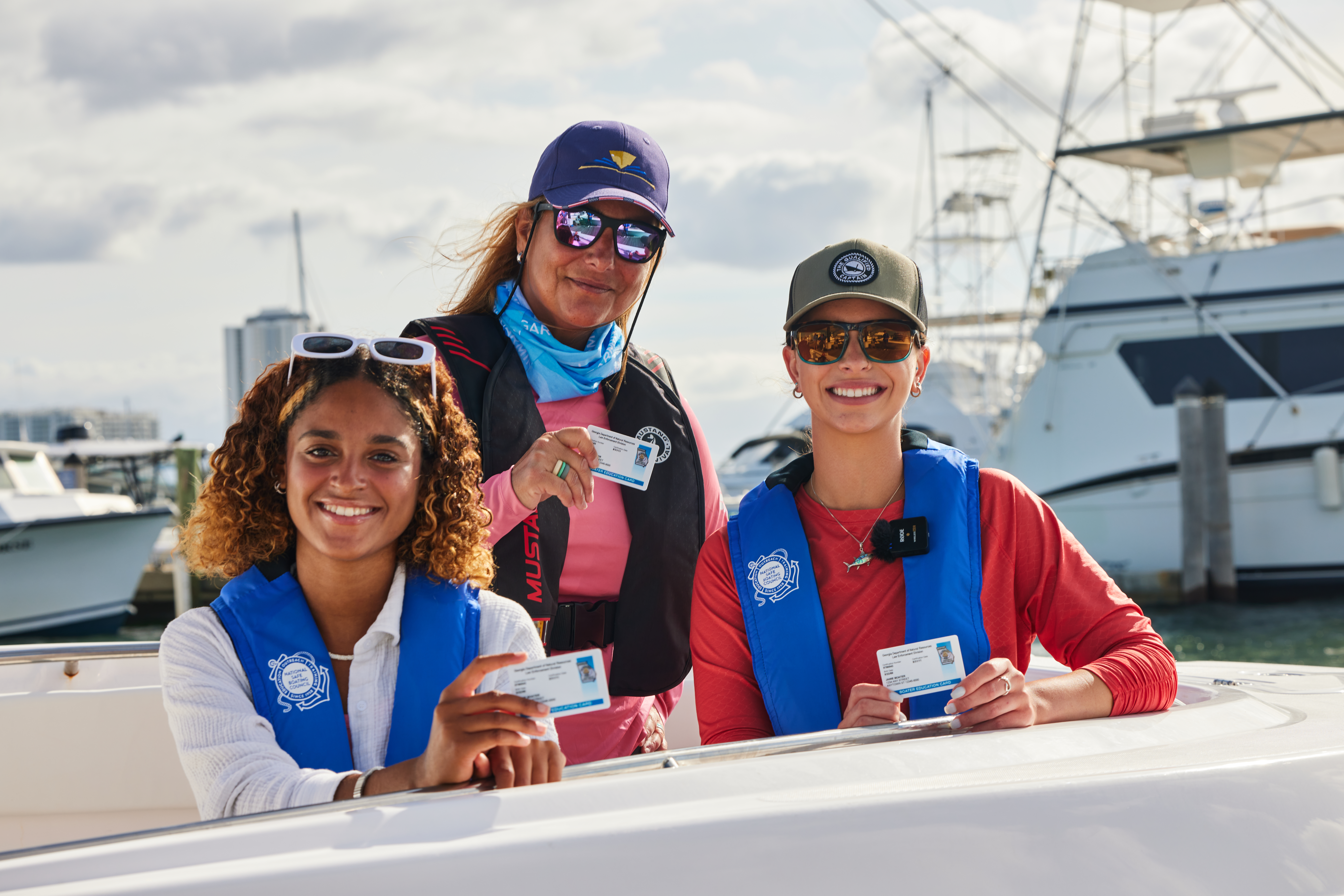
Enjoy a Safe Pontoon Boat Season With Boater Education
Pontoon boots are a family-friendly option for those who are into watersports or seeking a weekend escape on the water. While licensing is not always required, this doesn't mean that you shouldn't take a boating education safety course before heading out.
Boat-Ed can help you and your family get safety certified! Our online courses are convenient and simple to follow, even for young boaters.
Whether you have a new pontoon boat or need to comply with local regulations as a seasoned boater, find the course for your state or province and start learning before launching this season.

